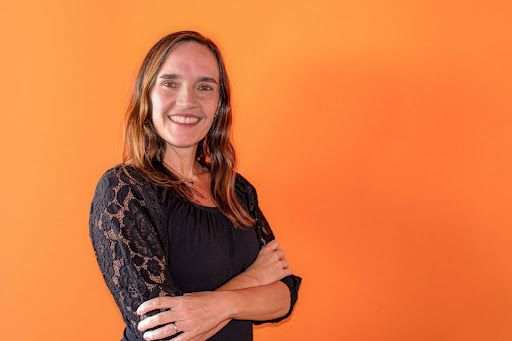Spotlight on Arms Control Advocate Carolina Ricardo in Brazil

Originally published on the GENSAC website.
As part of our ongoing series highlighting the leadership and expertise of our members around the world advancing gender-responsive small arms, GENSAC is proud to spotlight Ms. Carolina Ricardo, Executive Director of Brazil’s Instituto Sou da Paz. With a steadfast commitment to building more responsible and effective arms control policies, Carolina brings a powerful, multisectoral lens to her work—bridging public security reform, gender equality, and human rights.
Through evidence-based advocacy and strategic partnerships, Carolina and her team have illuminated the deep connections between firearms and gender-based violence in Brazil and championed policies to remove firearms from high-risk contexts, including domestic violence cases. Her work underscores the crucial role of civil society in shaping impactful, state-level reforms, while her voice on the UN Advisory Board on Disarmament Matters brings critical Latin American and feminist perspectives to global disarmament efforts.
Carolina’s journey from childhood aspirations to reduce inequality to leading one of Brazil’s most respected public security organizations is a powerful example of the impact of women’s leadership in this field. We are honored to share her story.
Read more about Ms. Ricardo’s journey in her own words below.
What is the goal of your work? And how does it relate to accelerating gender responsive small arms control?
The aim of my work is to contribute to the construction of a more responsible and effective arms control policy. As well as focusing on arms control, I am also working to professionalize the work of the police and public security policy in general. With regard to gender, we have produced analyses that point to the close relationship between firearms and gender-based violence, and we have provided robust evidence on how the presence of firearms increases both lethal and non-lethal violence against women in Brazil. In addition, we seek to promote measures to reduce the presence of firearms in the context of domestic violence, for example, by engaging justice and security actors as co-responsible for this process.
Why did you decide to work in this field? What has been your inspiration?
Ever since I was a child, I have always wanted to help reduce social inequality in Brazil. So, during law school, I started working on human rights. From this experience, I understood that working on public security and arms control policies would be an excellent alternative to help advance the protection of the rights of the most vulnerable people in Brazil.
What have been some of the main obstacles you have faced while doing your work? How do you stay motivated and resilient in the face of challenges or setbacks in your work?
Arms control is a very controversial issue, and recently it has become extremely ideologized in Brazil. This makes the work around the issue very difficult and sometimes even aggressive. The arms lobby is loud and violent and uses strategies that are often inaccurate. In this sense, we face many challenges in our work on this front.
Resilience comes from believing that we are on the right track, from finding committed professionals, from being able to create spaces of exchange and support with other people and groups who are also working on this agenda, and from feeling that even though few organizations are working on this issue in Brazil, we are not alone.
The strength and impact of the work of the Sou da Paz Institute also keep me going. Knowing that we are a strong organization with an incredible team that has been around for 25 years also motivates me a lot. Being the executive director of this organization gives me a tremendous sense of responsibility and pride.
What advice would you give to practitioners, policymakers, and other stakeholders seeking to make a difference in harnessing the leadership of women leaders and allies for small arms control, conflict prevention, violence reduction, and sustainable development?
My main piece of advice is to work in partnership. There is enormous potential for civil society organizations to work in partnership with governments to develop policies, programs, and methodologies. We work in partnership with Amassuru and the professional women working on arms control in Latin America. It’s a very rich exchange of mutual support and learning.
Civil society’s perspective helps public managers and professionals to zoom out in their work, fostering improvements that may be small but have a big impact. And civil society and academia working in partnership with governments can achieve impact and scale that would be difficult to achieve without government partnership.
What specific initiatives or strategies are you currently working on that you’re excited about?
I am currently a member of the UN Advisory Board on Disarmament Matters, a space where I can bring the Latin American perspective to the profile of conflicts in our region, as well as the type of weapons and technologies that most affect them. I’m a woman, relatively young compared to the profile of the Board, and I’m able to bring the voice of the Global South, particularly Latin America, to a very strategic space. This work has really excited me.
In addition, we are promoting the creation of specialized firearms control police stations in various Brazilian states, helping to increase the state’s capacity to control arms and remove illegal weapons from circulation. This concrete impact on reality also excites me a lot.
To read more about Carolina’s work and journey, check out these additional resources:
Related Resources
